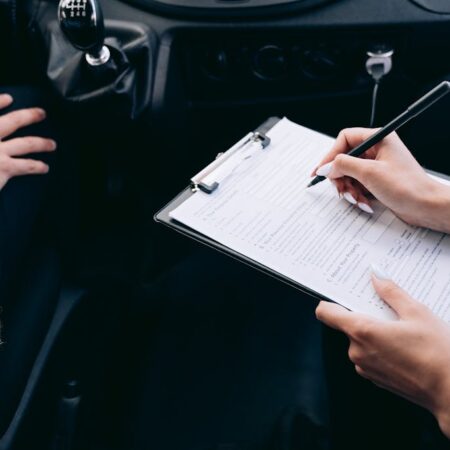Auto insurance can be a complex subject, especially when it comes to understanding the terminology used by insurers. Knowing the common terms related to car insurance can help you make informed decisions about your coverage. This guide will explain some of the most frequently used auto insurance terms, so you can navigate the world of insurance with confidence.
Premium
The premium is the amount you pay for your auto insurance policy, typically on a monthly, quarterly, or annual basis. The cost of your premium depends on various factors, including your driving history, the type of coverage you select, the make and model of your vehicle, and where you live. Insurers may offer discounts for safe driving, bundling policies, or having certain safety features in your car.
Deductible
The deductible is the amount you must pay out of pocket before your insurance coverage kicks in. For example, if you have a $500 deductible and your car sustains $2,000 in damage, you would pay $500, and your insurance would cover the remaining $1,500. Generally, policies with higher deductibles have lower premiums, but it’s important to choose a deductible that you can comfortably afford in case of an accident.
Liability Insurance
Liability insurance is the most basic type of auto insurance and is required by law in most states. It covers the cost of damages and injuries you cause to others in an accident. Liability insurance is divided into two main components: bodily injury liability and property damage liability. Bodily injury liability covers medical expenses and lost wages for the other party, while property damage liability covers the cost of repairs to their vehicle or property.
Collision Insurance
Collision insurance covers the cost of repairs or replacement of your vehicle if it is damaged in a collision, regardless of who is at fault. This coverage is particularly important if you drive a newer or more expensive car, as it helps protect your investment in case of an accident. Collision insurance is typically optional, but many lenders or leasing companies require it if you’re financing or leasing a vehicle.
Comprehensive Insurance
Comprehensive insurance provides coverage for damage to your vehicle that is not caused by a collision. This includes incidents such as theft, vandalism, fire, natural disasters, or animal collisions. Comprehensive insurance is usually optional, but it can provide valuable protection for your vehicle, especially if it’s new or has a high value.
Uninsured/Underinsured Motorist Coverage
Uninsured/underinsured motorist coverage protects you if you’re involved in an accident with a driver who either has no insurance or insufficient insurance to cover the damages. This type of coverage is particularly important in areas where there are a high number of uninsured drivers. It ensures that you won’t be left with a financial burden if the at-fault driver is unable to pay for the damages.
Personal Injury Protection (PIP)
Personal Injury Protection (PIP) is a type of coverage that helps pay for medical expenses and lost wages for you and your passengers, regardless of who is at fault in an accident. PIP is required in some states and optional in others. It can also cover other expenses, such as childcare or household help, if you’re unable to perform these tasks due to injuries sustained in an accident.
Roadside Assistance
Roadside assistance is an optional add-on that provides help in case your vehicle breaks down or you experience a flat tire, run out of gas, or need a tow. Many insurers offer roadside assistance as part of their policies, or you can purchase it as an add-on for an additional cost. This service can be especially useful if you’re stranded in an unfamiliar area or need help in an emergency situation.
Claims
A claim is a formal request made to your insurance company for payment or reimbursement for a loss covered by your policy. After an accident or damage to your vehicle, you would file a claim with your insurer to receive compensation for repairs, medical bills, or other related expenses. The claims process typically involves an adjuster evaluating the damage and determining the amount the insurance company will pay.
Understanding common auto insurance terms is crucial for making informed decisions about your coverage. Whether you’re selecting a policy for the first time or reviewing your existing coverage, knowing terms like premium, deductible, liability, and collision insurance will help you navigate the process with confidence. Always read your policy carefully and ask questions if you’re unsure about any terms or coverage options.







